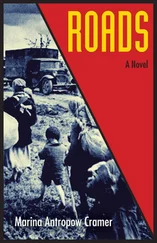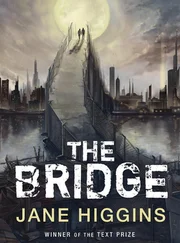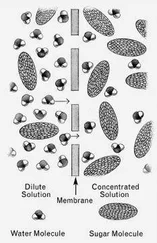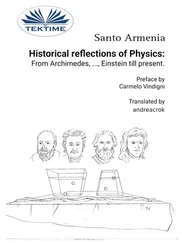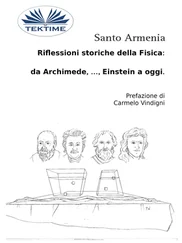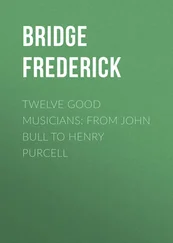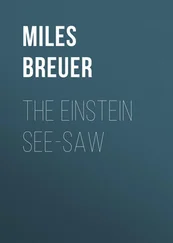Alice looked across at him penetratingly. “It sounds like an interesting life,” she said. “His, uh, living expenses were paid from the invested funds?”
He turned to her with a look of indignation. “No, ma’am! He wouldn’t take nothin’ for himself from the expense money for drillin’ the well. Daddy was an honest bidnessman, not a damn crook! Only money he got was his standard salary, just like it always said in the investor’s prospectus.”
“How much of a salary did he get?” she asked.
“Hardly nothin’, ma’am. Just two or three thousand a week. Real piddlin’, compared to what the big Oil Men pull down.”
Alice raised her eyebrows. She didn’t need a calculator to understand that Whitey’s father had been paying himself around $150,000 a year for bringing in dry holes. “So what went wrong, Whitey?” she asked. “It sounds as if your father had a permanent livelihood. Surely he couldn’t have run out of dry holes.”
He turned toward her again with a look of narrow-eyed suspicion. Then he said slowly, “As a matter of fact, Miss Alice, runnin’ out of dry holes is exactly what my daddy did do. Y’ see, he struck oil with his little rig. He drilled right into this great big old salt dome that nobody had even suspected was down there. It came in a real gusher, squirted oil fifty feet in the air. The black crude was all over the damn place. Daddy like to never got the smell outta his Cadillac.”
“Your father struck oil?” She glanced at him to see if he was making a joke, but his expression conveyed despair, not humor. “Surely that must have brought him much more money than he’d have made from drilling another dry hole.”
“Of course it did,” he said. “Millions. Trouble is, my daddy’s way of handlin’ money had always been to spend it all. So that’s what he did. Gave hisself a big raise in salary for bringing in a gusher. Bought his bidness some more cars and trucks and a jet airplane. Bought hisself a big house in Highland Park in Dallas and another in River Oaks in Houston. He’d fly me and Grandma over to Vegas or Reno once in a while; he made lotsa friends there. Had him a hell of a time, just like one’a them big Oil Men.”
“Sounds very nice,” said Alice without enthusiasm. She never enjoyed hearing about other people doing stupid things.
“Trouble was, the damn investors expected to be paid. That’d never happened to Daddy before. Always before he’d send them the telegrams tellin’ about the dry hole, and that’d be the end of it. But this time they wanted more than telegrams. They wanted their money, and they sicced their fancy New York lawyers on to him.
“Skinned my daddy good, they did. He had to file for bankruptcy. They took his cars, his jet plane, his houses, his boat. They took away the red Corvette he’d bought me. They took every damn thing but my grandma’s house, the one next to where you live? They even took away his drillin’ rig, so he couldn’t even drill no more wells to pay ’em back. I was a senior at Waxahachie High when it all hit the fan. I was plannin’ to go to A&M and study petroleum geology and help Daddy in the bidness when I graduated. But I decided to join the Marines instead. Some people thought it was real funny when we lost our money.”
Alice nodded. “Small towns can be cruel,” she said.
“My daddy never recovered,” Whitey continued. “By the time I was back from the Persian Gulf, he’d got himself drunk as a skunk and killed himself in a car wreck.” Whitey’s voice sounded constricted. “Guess it was just as well,” he said finally. “Ain’t no wildcatters left in the oil bidness anymore anyhow. My daddy was the last of ’em. Texas is pretty much out of oil, at least oil that can be got out of the ground for less than you can sell it for.”
They were both silent for a while. Then ahead on the right she saw what looked like the stone walls of a medieval city, with many-colored pennants fluttering from the peaked watchtowers and battlements. There was a parking lot beside the place filled with cars, and she could see people, some in bright costumes, walking in and out of the arched sally ports. “What in the world is that?” she asked.
“Oh,” said Whitey and laughed. “That’s the Scarborough Faire. It’s kinda hard to explain, but they have all these buildings made of plaster and plywood that are made to look like real old castles and things. Like in the Middle Ages? Every year about this time they have a sort of medieval folk festival that lasts all of the month of June. They get actors who pretend to be medieval characters, and they have archery matches and jousts and sword fights and things. They have pony rides for the kids. They sing and dance and roast pigs and have a great time. Folks come from all over the state to go to the Scarborough Faire. Some say they like it better than the big Texas State Fair in Dallas.”
As they passed the Scarborough Faire, Alice shook her head in wonder. What a lovely setting. It wasn’t at all what she would have expected to find along a rural Texas highway. And it was marvelous for her purposes. She could just see the giant mutant fire ants doing battle with medieval knights in armor. She would write the scene tonight.
Whitey pointed to the large building looming on the horizon. “That there’s the Ellis County Courthouse. Have you had a chance to look at it yet, Miss Alice?”
“I’m afraid not,” she said. “It’s on my list of things to do, but I’ve been too busy so far.”
As they entered Waxahachie, the red and white stone courthouse loomed ever larger. In a few minutes, as she was curving around the courthouse square, she got a close look at the building. Its details, as they became clearer, were hard to believe. There were watchtowers and balconies, columned belvederes and pediments. It looked, Alice thought, like the opium dream of a Victorian building contractor.
“See those red stone carvings above the doorways?” Whitey asked. “They hired some Italian stone cutters to come over here and make them. And one of them fell in love with the town librarian. Daughter of the woman who run the boardin’ house where they was stayin’? That fella must have really loved her. He carved her picture all over the buildin’. And he started out carvin’ her real sweet and pretty like. But after a while they must not of got on, ya know? ’Cause the last carvings he did showed her old and kinda strict-looking’, with real hard eyes. They say he just went on back to Italy, poor guy. Hope he did better there.”
Alice smiled. “That’s a wonderful story,” she said. She had already read it in a brochure and planned to work it into her novel somehow. Perhaps the giant mutant fire ants would invade the Ellis County Courthouse and eat a tour guide in misspell.
They were heading east out of the town now, and both sides of the highway were lined with cultivated fields. “I noticed that some of the farmers seemed to be raising crops right on top of the ring,” said Alice.
“Sure,” said Whitey. “Ain’t no radiation, it’s so deep down. The state bought the land and gave it to the U.S. government. The DOE leases it back to the farmers to raise crops on, if they want to. Farmers don’t like that much, though, ’cause they can’t drill water wells near the ring, and the SSC health people get on ’em when they try to poison the cotton.”
“Poison cotton?” Alice echoed.
“Yes’m,” said Whitey. “This here is black-dirt cotton country. In the olden days Waxahachie used to be a rich boomtown, the cotton capital of East Texas. All those nice gingerbread houses in Waxahachie was built then. When the cotton plants are full growled, you can kill ’em with plant poison. That way you can harvest the cotton in time to plant a second crop in the same year. The plants die and dry out in a hurry, the bolls open up, and it’s easy to pick the cotton quick and send it off to the gin. If you look way over there, you can just see the big cotton gin at Palmer. It’s too early in the year for them to have any cotton bidness, though.”
Читать дальше

